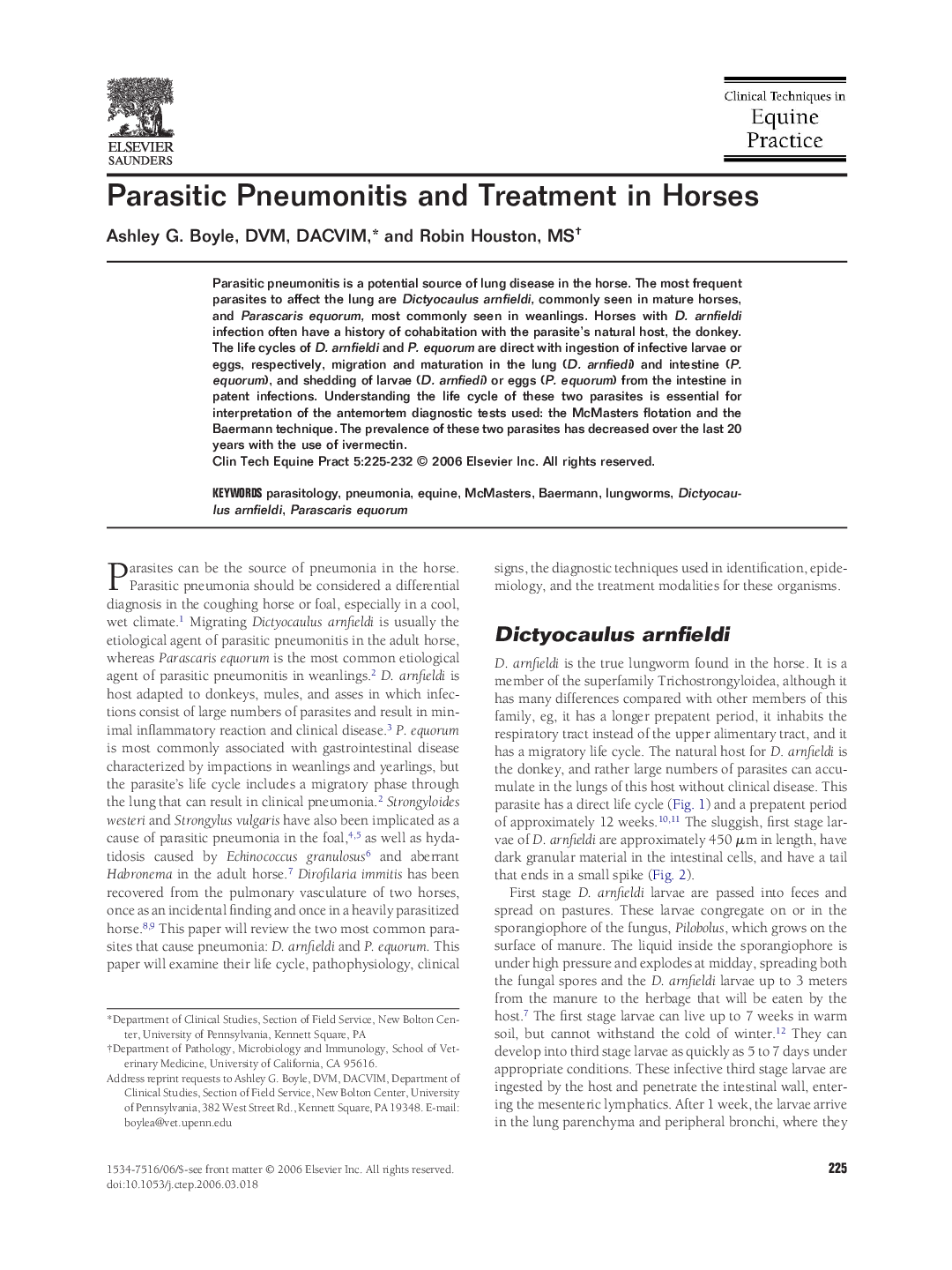| Article ID | Journal | Published Year | Pages | File Type |
|---|---|---|---|---|
| 2393251 | Clinical Techniques in Equine Practice | 2006 | 8 Pages |
Parasitic pneumonitis is a potential source of lung disease in the horse. The most frequent parasites to affect the lung are Dictyocaulus arnfieldi, commonly seen in mature horses, and Parascaris equorum, most commonly seen in weanlings. Horses with D. arnfieldi infection often have a history of cohabitation with the parasite’s natural host, the donkey. The life cycles of D. arnfieldi and P. equorum are direct with ingestion of infective larvae or eggs, respectively, migration and maturation in the lung (D. arnfiedi) and intestine (P. equorum), and shedding of larvae (D. arnfiedi) or eggs (P. equorum) from the intestine in patent infections. Understanding the life cycle of these two parasites is essential for interpretation of the antemortem diagnostic tests used: the McMasters flotation and the Baermann technique. The prevalence of these two parasites has decreased over the last 20 years with the use of ivermectin.
